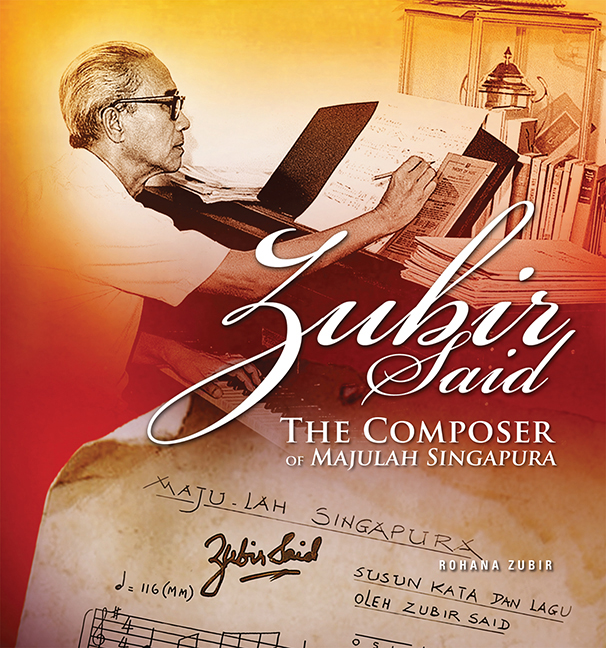Book contents
- Frontmatter
- Dedication
- Contents
- Majulah Singapura
- Foreword
- Message
- Preface
- Acknowledgements
- Prologue
- Map of Sumatra
- 1 The Birth of an Anthem and Challenges to Overcome
- 2 Headlong into Adulthood
- 3 Mystical Singapore: City of Lights, Butter, Coffee and Milk
- 4 World War II: New Directions
- 5 Where the Sky Above I Hold, the Earth Beneath I Tread
- 6 190A Joo Chiat Place: A Sanctuary of Bliss and Blessed Woes
- 7 The Lull, Celebrations, Music, Respite, Then the …
- 8 The Storm Afterwards
- 9 The Birthday Bash and Final Curtain
- Epilogue
- Bibliography
- Index
- About the Accompanying Music CD
Foreword
Published online by Cambridge University Press: 21 October 2015
- Frontmatter
- Dedication
- Contents
- Majulah Singapura
- Foreword
- Message
- Preface
- Acknowledgements
- Prologue
- Map of Sumatra
- 1 The Birth of an Anthem and Challenges to Overcome
- 2 Headlong into Adulthood
- 3 Mystical Singapore: City of Lights, Butter, Coffee and Milk
- 4 World War II: New Directions
- 5 Where the Sky Above I Hold, the Earth Beneath I Tread
- 6 190A Joo Chiat Place: A Sanctuary of Bliss and Blessed Woes
- 7 The Lull, Celebrations, Music, Respite, Then the …
- 8 The Storm Afterwards
- 9 The Birthday Bash and Final Curtain
- Epilogue
- Bibliography
- Index
- About the Accompanying Music CD
Summary
A national anthem sings of a country's soul. It captures what it means to be a citizen, what unites citizens, and what distinguishes them from others. It is also a way of re-dedicating oneself to the Nation and all it stands for. People are urged to rise over passing occasions and be an exalted repository of a nation's deepest aspirations and profoundest dreams. At the same time, the anthem has to be simple enough for ordinary people to understand and relate to. Most of all, it has to appeal to the young — tomorrow's leaders and protectors of the nation who are being moulded in today's world. There are few things more moving than to see and hear peoples and particularly children celebrate their common future around the national flag, which children greet with the national anthem at the beginning of each school day. When abroad on important occasions, the singing of the anthem stirs our emotions even more strongly.
Singapore's national anthem fulfils all these functions. What is special about it is that it reflects the special nature of Singapore as a country born out of a disrupted flow in history, and yet a country which had to prove that its exceptionalism could survive and succeed. For this, every Singaporean must be grateful to Zubir Said, whose Majulah Singapura captures the flowering of the Singapore imagination vividly yet simply.
Our road to Independence began with internal self-government in 1959. That is when the great task of building our Nation awaited us. It was at that time that our national anthem was produced by Zubir Said.
The anthem in the original — that is in the Malay language — is pregnant with exhortations. The wordings are simple, but they evolve a call to our people to look ahead and overcome the challenges ahead, though not specifically stated, in a spirit that is new. The singing of it is a call to all, with a promise of a new dawn. Every pause, every emphasis, every nuance in it is meant to evolve that purpose, with determination.
- Type
- Chapter
- Information
- Zubir Said, the Composer of Majulah Singapura , pp. viii - ixPublisher: ISEAS–Yusof Ishak InstitutePrint publication year: 2012



